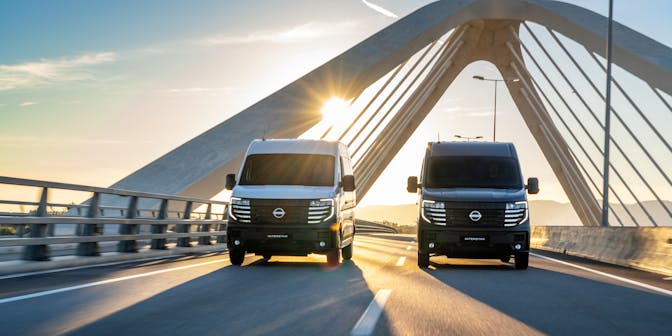Electric vehicles vs petrol/diesel/hybrid
It’s impossible not to have noticed the sea change in the motor industry over recent years. From the rise of autonomous cars to the soaring popularity of electric vehicles (EVs), this is one of the most exciting periods in automotive history.
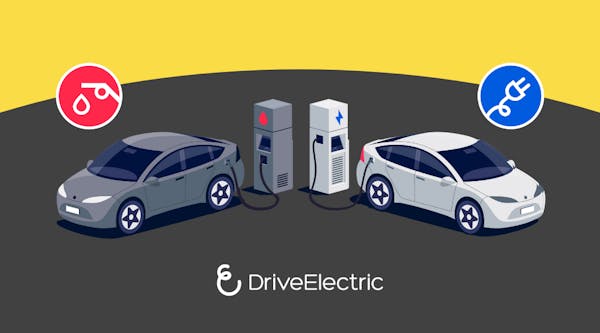
Whether you run a business fleet, manage company vehicles, drive a car for work, or simply own a car for personal use, you might be wondering if now is the right time to switch to electric. That is, if you haven’t already made the leap. With more models, longer ranges, better charging options, and financial incentives than ever before, the question is no longer if EVs can replace petrol, diesel, and hybrids; but whether you’re ready to enjoy the benefits. In this guide, we explore how electric vehicles compare across cost, convenience, performance, and environmental impact.
Looking to compare the latest electric car leasing deals? Start your search with DriveElectric.
Cost of electric cars compared
Electric cars can represent huge savings when driven for business use. This is because the cost of charging an EV is far lower than the price of fuel, meaning electric car cost per mile figures are significantly lower than internal combustion engine (ICE) vehicles.
They’re also much lower than hybrids which have limited range, or regularly travel above their all-electric range on a daily basis. Typically, conventional fleets can cut their fuel costs by around 80% by switching to battery electric vehicles (BEVs).
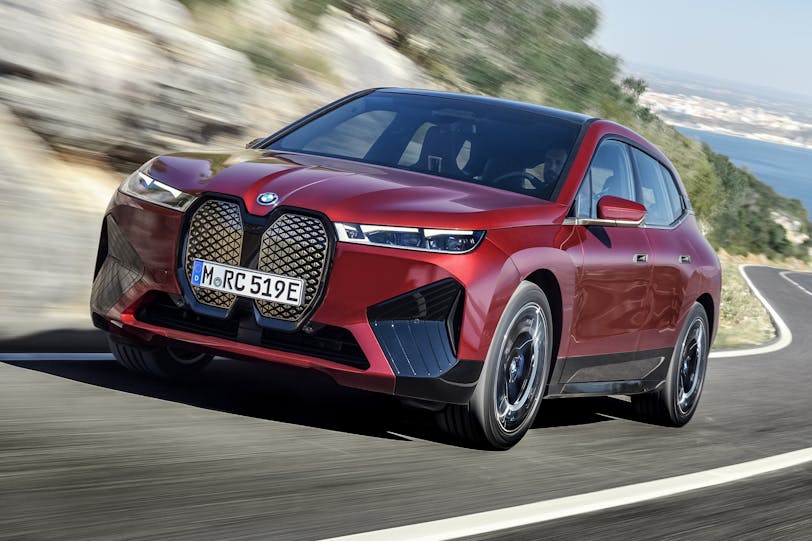
Electric vehicles (EVs) continue to offer significant savings thanks to their lower maintenance requirements. With fewer moving parts than petrol, diesel or plug-in hybrid vehicles (PHEVs), there’s less that can go wrong, which helps reduce running costs. For company car drivers, Benefit-in-Kind (BIK) tax remains low at just 3% in the 2025/26 financial year, with a gradual increase to 5% by 2028, as confirmed by government plans. EV drivers can also save on road tax, Ultra Low Emission Zone (ULEZ) charges and congestion fees, making electric cars a cost-effective and future-ready choice for both businesses and individuals.
The Zap Map Journey Cost Calculator is a brilliant tool you can use to compare the cost of running EVs to other vehicles. We’ve run the figures for some popular EVs, ICE equivalents and hybrids below, pitching them against each other to give you an idea of running costs.
Electric versus... - the shoot out
Data from Zap Map Journey Cost Calculator; Electricity price: 25p/kWh & Fuel price: 150p/litre. Approx. 10,000 miles/year
Make & Model |
Powertrain |
Approx. Cost per Mile |
Approx. annual fuel costs |
|---|---|---|---|
Electric |
6.7p |
£669 |
|
Ford Focus |
Diesel |
11.4p |
£1,136 |
Electric |
6.4p |
£639 |
|
BMW 3-Series PHEV saloon |
Plug-in Petrol Hybrid |
10.6p |
£1,055 |
The cost of electric is increasing...
But so too is the cost of petrol and diesel
Back in 2022, the UK and other countries experienced a significant energy crisis. A combination of factors caused electricity prices to spike sharply.
By June 2022, the average cost of petrol had risen above 180p per litre, while diesel averaged 188p per litre. Some areas saw prices exceed £2 per litre for the first time.
Now, in July 2025, the energy crisis has eased, and costs are gradually stabilising. For consumers, electricity pricing remains mixed.
For those who have moved off fixed-rate deals onto variable tariffs, the average price of electricity is currently around 25.73p per kilowatt-hour.
New customer energy deals are steadily returning to the UK market.
However, variable tariffs remain available for electric vehicle drivers with home chargers. This means EV owners can still access overnight electricity rates as low as 9p per kilowatt-hour. To put this into perspective, a typical efficient EV achieves around 3 miles per kilowatt-hour, which means a 9p per kilowatt-hour tariff works out to just 3p per mile. This is significantly cheaper than running a petrol or diesel vehicle, and one of the many reasons drivers are now exploring electric car leasing as a cost-effective way to make the switch.
Additionally, more employers are providing workplace charging options, sometimes free or subsidised, which reduces refuelling costs. And there are also other options such as household solar arrays which convert sunshine into electricity.
It is fair to say that driving an EV allows you to plan and control how and when you refuel your vehicle, instead of being limited to the price on the petrol forecourt.
Therefore, the benefit of switching to an electric vehicle is compelling, even when just looking through the lens of refuelling costs, especially if you’re ready to find the best electric car leasing deals and make the move when it suits you.
Our electric car lease special offers
Cupra Born 170kW e-Boost V2 59kWh 5dr Auto
- £2,048.63 Initial rental (ex. VAT)
- £2,458.35 Initial rental (inc. VAT)
- 48 Month term
- 5000 Annual mileage
- Subject to status and conditions + arrangement fee
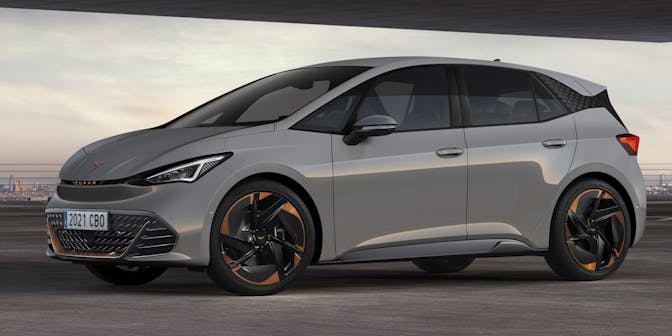
Genesis GV60 234kW Sport 77.4kWh 5dr AWD Auto [Comfort]
- £3,414.21 Initial rental (ex. VAT)
- £4,097.06 Initial rental (inc. VAT)
- 48 Month term
- 5000 Annual mileage
- Subject to status and conditions + arrangement fee
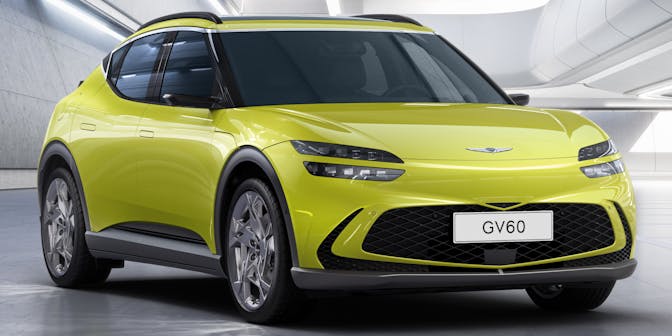
Polestar Polestar 4 200kW 100kWh LR Single Motor Prime 5dr Auto
- £3,611.97 Initial rental (ex. VAT)
- £4,334.37 Initial rental (inc. VAT)
- 48 Month term
- 5000 Annual mileage
- Subject to status and conditions + arrangement fee
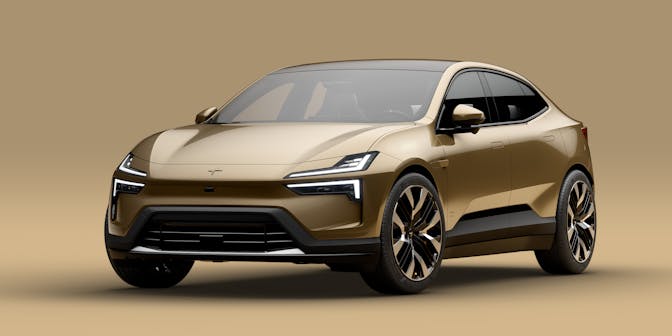
How far can an electric car go?
Many electric cars in 2025 are now capable of covering more than 250 real-world miles on a single charge, which is more than enough range for most company car drivers. Take the new Audi A6 e-tron Sportback as an example. With a WLTP range of up to 470 miles, it sets a strong benchmark for long-distance electric driving.
It’s not just Audi leading the charge. Established manufacturers like BMW, Mercedes-Benz and Volvo already offer multiple electric models with ranges comfortably exceeding 300 miles. What’s especially exciting in 2025 is the arrival of new names on UK roads. Brands like BYD and XPENG are launching affordable, long-range electric cars that are ideal for everyday drivers, company car users and fleet managers alike. Offering even more choice for anyone thinking about making the switch to electric.
Perhaps more typically, EVs such as the Volkswagen ID.3, Mercedes EQC, Hyundai Kona and Jaguar I-Pace fit into the 250-300-mile WLTP range. So these electric cars will happily cover 200 miles on a single charge in the real world (WLTP figures should always be taken with a pinch of salt). The Peugeot e-Expert van, meanwhile, has a WLTP range of just over 200 miles, with our ‘real world’ range coming in around the 160 mile mark.
Even if you or your drivers cover higher distances than this on a daily basis, Britain’s ever-improving EV infrastructure means charging your battery on the fly is easier than ever. There are now more electric car charging locations across the UK than standard petrol stations, while businesses can receive financial help towards installing on-site charge points. This will help you with keeping your zero-emission fleet on the road all day, every day.
Are electric cars easy to run?
With all of those charging locations, as well as the improved availability of rapid and ultra-rapid charging points, there’s never been a more convenient time to run an electric car. The country, and indeed the planet, has woken up to the importance of reducing our carbon footprint, leading to an enhanced electric motoring experience almost everywhere you look.
This includes the greater prevalence of public charge points at places like shopping centres, supermarkets and even pubs and restaurants, allowing electric car or van drivers to top up their batteries at times most convenient to them. And while you still of course need to keep up with basic maintenance aspects such as tyre pressure, lights and washer fluids, the simpler design of EV engines means less time spent in the garage getting fixed.
Comfort of electric cars vs petrol and diesels
Comfort is often relative to individual models, vehicle size, specs and tuning things like your suspension, but the very essence of most electric cars is based upon a smooth, comfortable ride. This is because you get the best economy when you drive like this, with features such as regenerative braking even allowing you to drive using only the accelerator pedal.
Thanks to their modern design, EV cabins are usually pleasant places to be, with many manufacturers developing fresh interiors for their electric cars. And with more premium carmakers entering the fully-electric domain, comfort levels and luxury are better than ever.
Can you lease an electric car?
In many respects, leasing an electric car is one of the best ways to get into EVs. With short contracts usually lasting two or three years, you can stay ahead of the curve when it comes to driving the latest models as and when they’re released. Indeed, we even offer our unique short term EV leasing FlexiHire service to businesses, where you can organise short-term rentals to get a feel for a certain EV, before easily extending or terminating your contract without any fees.
Environmental benefits of electric cars
Aside from all of the cost benefits and other great reasons for going electric, the environmental benefits are the most important. With cars such as the VW ID.3 offering a carbon neutral footprint right through its supply chain and production to use and recycling, fully-electric motoring is crucial to the future of our planet.
Published: 2021
Last updated: Aug 2025

The growing electric car market: more support, more choice
In 2025, electric vehicles are more accessible than ever, thanks to a combination of government support and manufacturer-led incentives. One of the most significant developments is the launch of the Electric Car Grant (ECG), a £650 million scheme introduced by the UK government to help drivers make the move to electric.
Replacing the old Plug-in Car Grant (PiCG), the ECG officially launched on 16 July 2025, offering savings of up to £3,750 on eligible EVs at the point of sale. The grant is focused on cars priced under £37,000, aiming to close the upfront cost gap between petrol and electric models, a key barrier that still holds some drivers back.
The full £3,750 grant is reserved for cars that meet the highest standards in both environmental performance and sustainable manufacturing. This ensures that support is going to the cleanest vehicles on the market, encouraging innovation while helping more households afford the switch.
In addition to the new Electric Car Grant, many car brands have launched their own discount schemes. Skoda, Volkswagen and Cupra, among others, are offering competitive deals and cashback incentives to further reduce the cost of getting into an electric car.
With the return of government-backed savings, growing manufacturer support, and a wider range of EVs to choose from than ever before, leasing or buying an electric car in 2025 makes more sense than ever.
More EV guides
Electric vehicle winter driving tips and advice

Why 2025 is a turning point for SME fleets
6 surprising things you didn’t know about electric vans
